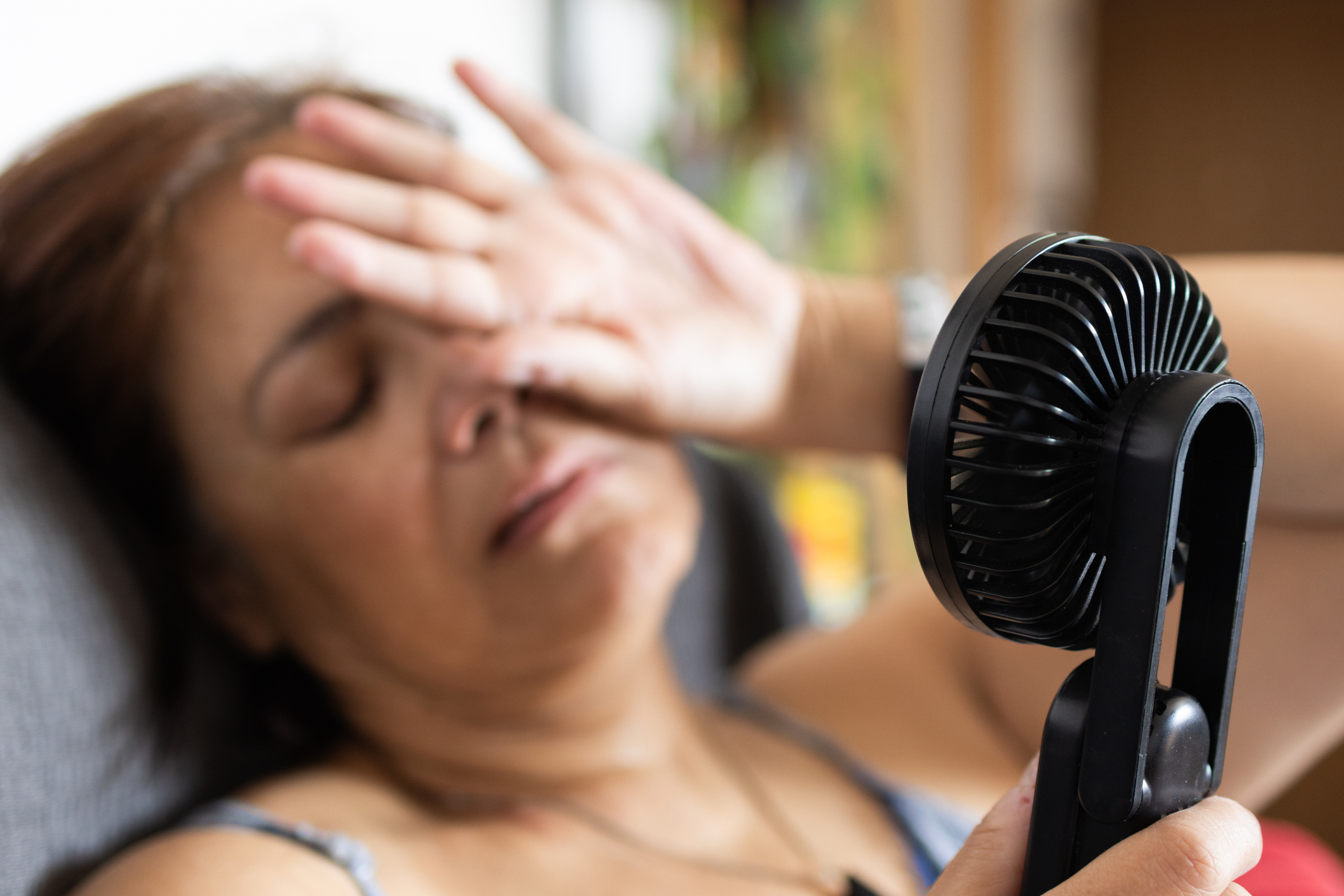Get Easy Health Digest™ in your inbox and don’t miss a thing when you subscribe today. Plus, get the free bonus report, Mother Nature’s Tips, Tricks and Remedies for Cholesterol, Blood Pressure & Blood Sugar as my way of saying welcome to the community!
Nighttime heat: The stroke risk we didn’t know about

No one hates being hot when they sleep more than I do. In the dead of winter, you’ll find my windows open and an extra quilt on the bed.
In the summer, well … even a sheet is sometimes too much.
Recently, a study revealed that my cool sleep habits not only help me feel more comfortable so I sleep better — but they may also cut down on my stroke risk…
An overheated room is a stroke risk
Being too hot is one of the top five reasons that people have trouble falling asleep at night, right up there with insomnia and a racing mind.
And we know there are consequences if poor sleep becomes a chronic problem.
Now, a new study has found that being overheated while sleeping is linked to a very specific danger: it increases the risk of stroke, especially in women and the elderly.
A research team at Augsburg University Hospital in Germany analyzed data on around 11,000 strokes over fifteen years, they determined that extreme heat at night increases the risk of stroke by seven percent.
Now, seven percent may not sound like a lot.
But consider this: there are about 169 million women in the United States alone. And seven percent of that number is 11,830,000.
That means that excessive heat could potentially cause almost 12 million strokes that might not happen otherwise.
The scientists behind the research believe climate change is contributing to the problem…
That’s because from 2006 to 2012, hot nights resulted in two additional strokes per year, while from 2013 to 2020, there were 33 additional cases per year.
But even without taking climate change into account, it’s not hard to see how any of us could be sleeping in bedrooms where temperatures get too warm, especially during the summer months.
How hot is hot?
For purposes of this study, a temperature of 58.28 degrees Fahrenheit was considered the threshold for defining a “Hot Night Excess Index.”
That temperature was exceeded only on the five warmest nights during the study period.
That’s almost 60 degrees. On a warm spring or summer night, it’s easy to see how a poorly ventilated room without air conditioning could reach temperatures much higher.
“Elderly people and women are particularly at risk, and it is mainly strokes with mild symptoms that are diagnosed in clinics after hot nights,” says the study’s lead author, Dr. Cheng He.
Is YOUR bedroom a stroke risk?
My bedroom is at the top of the house (it used to be the attic). And heat rises.
I’ve combated this by installing a ceiling fan. If you can’t do this, then invest in a large floor fan that can blow directly at your bed.
I also keep the roof window open wide, allowing cooler nighttime air in. With my bedroom door open as well, there’s plenty of cross-ventilation.
During the dog days of summer, I use a portable air conditioning unit. Depending on what part of the country you live in, you may have an air-conditioned home and might want to reconsider your nighttime setting.
Even if you don’t feel your bedroom is too warm when you bed down for the night, pay attention to how often you wake up before morning because that’s often a clue. What you don’t want is to wake up sweating, because that probably means your room’s too warm.
Also, don’t overdress for bed during the warmer months. In fact, you should consider sleeping without any clothing at all. Studies show that those who do tend to experience more restful, high-quality sleep.
If you need extra help, supplementing folate can keep your blood moving by increasing nitric oxide to aid in cooling the skin and reducing risk for heart problems. Eating beets will as well if you’re a fan! They are rich in folate and many other protective nutrients.
Editor’s note: What do you really know about stroke? The truth is, only 10% of stroke survivors recover almost completely, and all doctors can offer is what to do after a stroke occurs. That’s unacceptable considering 80% of strokes are preventable! Click here to discover how to escape The Stroke Syndrome: 5 Signs it’s Stalking You — Plus the Hidden Causes and Preventive Measures You’ve Never Heard About!
Sources:
Night-time heat significantly increases the risk of stroke — Science Daily
Hot Nights Raise Stroke Risk — Neuroscience News
Nocturnal heat exposure and stroke risk — European Heart Journal














